Category Archive for Tokyo + Japan
Aomori, Japan: A ghostly Gothic travel guide! Haunted Mount Osore, Misawa art museums, Terayama Shuji memorial.

Feeling so nostalgic for Japan… I miss the era when we could party all night, and share absinthe freely! At this rate, I’m not sure when I can safely return.
Thankfully, I have a crew of Pirates — and we can live vicariously through their travel adventures in Japan and beyond.

Today, we’re letting our favorite spooky lady, Yukiro Dravarious, steer the ship… with a guide to traveling in Aomori, Japan! Read on for bizarre and Buddhist art, and a visit to Mount Osore, a hell-like volcano haunted by Gothic spirits.
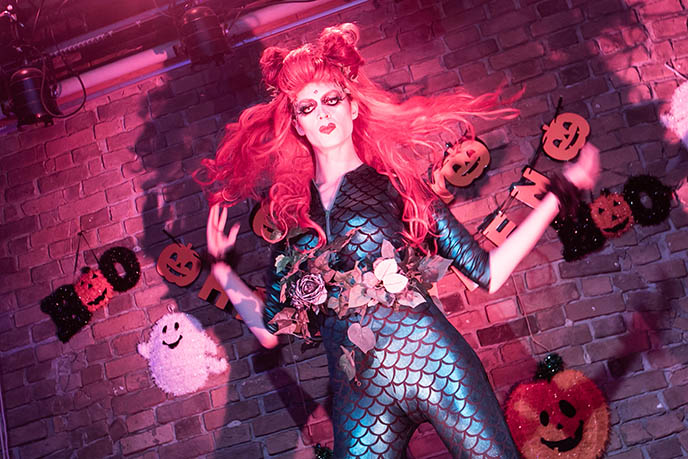
Before I turn over the wheel, I wanted to share some of Yukiro’s recent drag photos and projects (as Die Schwarze Frau). She and her Haus of Schwarz did a live, socially-distanced performance for Tokyo Closet Ball. Watch it here; our dead diva comes alive near the end.
For more fabulosity, check out Yukiro’s Witch Review series on YouTube — it breaks down the best horror B-movies, without spoilers!

And you’re invited to Yukiro’s online Halloween party on October 10, 8pm Japan time! Tune into the event here — Casket of Horrors. All members of her drag Haus will perform live, followed by a battle to the death between 10 spooky video contestants.
If this Evil Queen’s genius makes you bow down in awe, show your support by buying Yukiro a glass of red wine here.
(Above photos by: Akane Kiyohara from Beauty Blenda, by Haus of Gaishoku.)
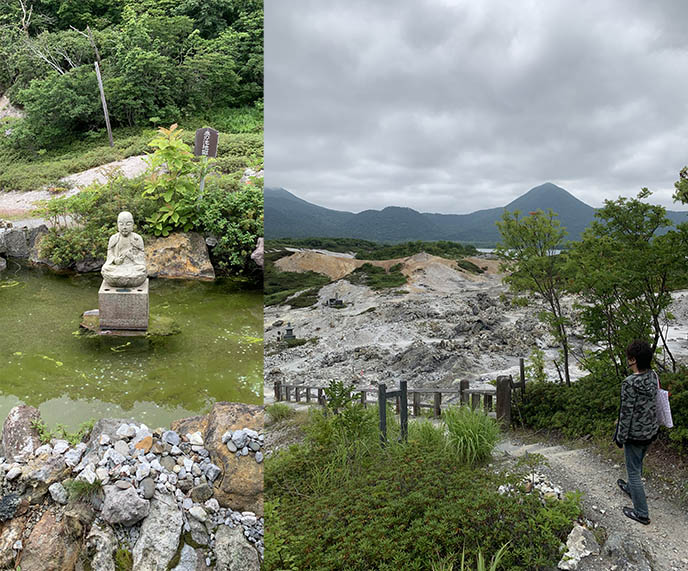
Now gather round children, and let’s listen to Yukiro’s Aomori travel story…
In July, my boyfriend and I escaped the Tokyo heatwave by taking a local trip to Aomori. It was our first time visiting the northernmost region of Japanʼs main island Honshu (本州), right below Hokkaido. We researched where to go and what to see – as well as the government’s safety recommendations, as our priority was to minimize the risk of getting or spreading COVID-19.
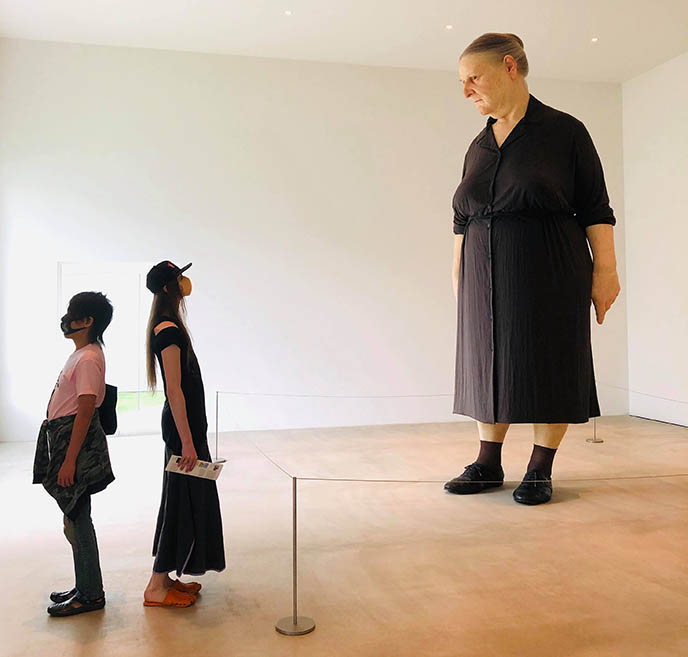
Our shinkansen route: We took the bullet train to Hachinohe (八戸) from Tokyo Station. Then, we took a local train to Misawa (三沢) where we booked our hotel. The trip took about 4 hours and cost about 18000 yen one way. We travelled just before the Japanese summer vacation so we avoided crowds, and got a very reasonable deal on our hotel, Hoshino Resort Aomoriya (less than 5000 yen per person a night!)

Pro tip: Pack a mask and hand sanitizer, and avoid crowded trains and rush hours. Our trains were more or less empty, and we saw almost no humans during this trip. Just what we desired!
Misawa is a rejuvenating spot, and we were delighted by the brisk air, surrounding nature, and no humans as far as the eye could see. Between Misawa station and the hotel, there was a 10-15 min walking path through small waterfalls and meadows.

Our hotel, Hoshino Aomoriya, was one of the best I’ve been to in Japan. We had an airy room and relaxation area. It bordered a Japanese park filled with art, birds, pony rides, jogging routes, and a pond with lotus flowers and auspicious carp fish.
The hotel also had two natural onsen (hot springs) free of charge for hotel guests, with both inside and outside options. The outdoor onsen was especially spirited as it was surrounded by trees, a pond, and trailing pink flowers.

The hotel displayed art from Okamoto Taro (岡本太郎); I loved his kappa-like spirit depiction. I was impressed by the collection of nebuta, or gigantic paper figures in the form of dragons, gods or Shoguns. Some were 9 meters in length, and spat out smoke and lights. Aomori has a yearly Nebuta festival (ねぶた祭) every summer, but it was cancelled due to the virus. In the future, I hope I can see this procession of musicians, dancers, and locals carrying the giant white floats.
I carried my mosquito repellent and sun lotion and hand sanitizer in my bag, as well as sunglasses and a mask of course. I was expecting mosquitoes but to my delight I wasnʼt bitten once in Aomori! In Tokyo I get bitten 1-3 times a day if I donʼt wear full cover up or spray myself heavily with repellent.

We chose to stay in Misawa because it was close to the memorial museum of Terayama Shuji (寺山修司). He’s an avant-garde poet, dramatist, writer, and film director — one of the most influential Japanese artists. Iʼm a big fan of his provocative movies and was eager to learn more about this extraordinary man.
Getting to the Terayama Shuuji museum: We took a 20 minute taxi ride from Misawa station, since there are only connecting buses on weekends and during vacations. All museums (and most stores) are also closed on Mondays in the Misawa area, and you more or less need a car to efficiently get around Aomori.
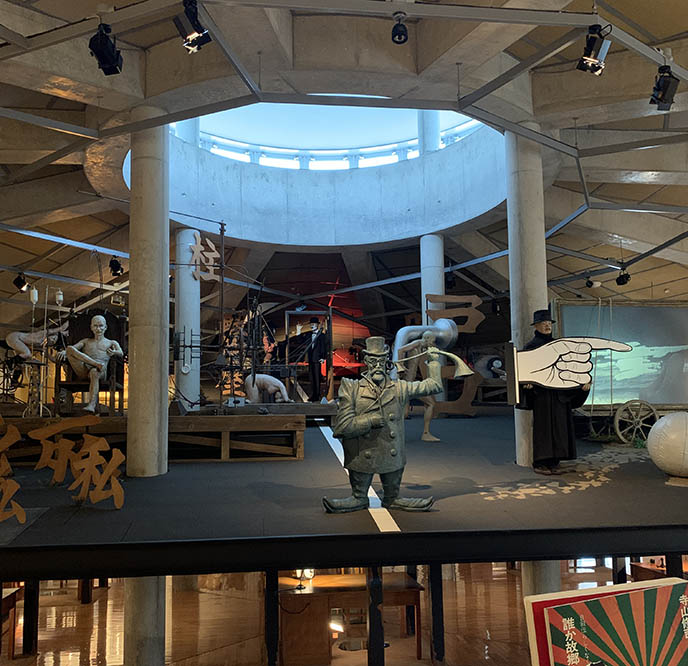
Needless to say the Terayama Shuji museum was very much worth the costly taxi ride (4000 yen one way). Every guest has to get their temperatures checked, and wear plastic gloves provided by the museum, as well as pay a small admission fee of 400 yen.

Terayama Shuji’s museum was as kooky and wicked as one would expect. The first room was a traditional exhibition space about his career, along with books, merchandise and collaboration pieces.
The second was very impressive since it was designed like a treasure hunt! There were 12 desks, and you had to use a flashlight, open drawers and find secret hidden panels. Each bench contained keywords to help solve the riddles. Inside the desk drawers were more facts, poems and interesting curiosa regarding Terayama; some even projected movie clips. The other parts of the room contained a library, and a ceiling constellation of his bizarre characters being lit up one after another. We bought some goods and left, without seeing another single visitor, and were very pleased.
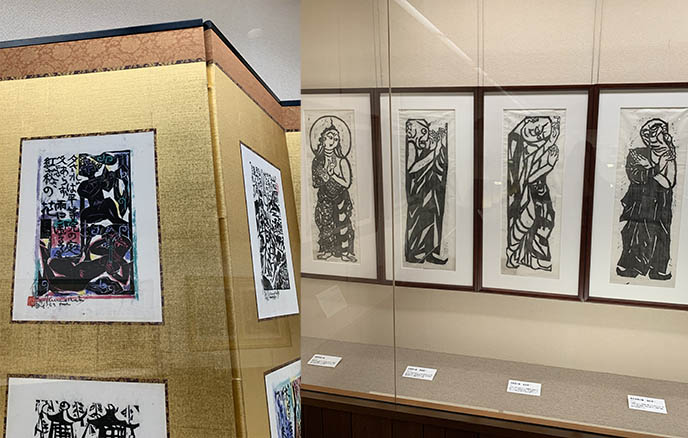
We then took the local train to Aomori city, and from the station, we rode a bus to Heiwa Park (the Park of Peace – 平和公園) , which is said to be haunted! Unfortunately we did not encounter any ghastly beings, as it was empty as everywhere.
Then, we paid 400 yen to visit the memorial museum of Shikō Munakata (棟方 志功), a woodblock printmaker who reached international fame. Munakata was known for his eccentric personality and obsession with Vincent van Gogh; at a young age he claimed to be the “Van Gogh of Aomori.” The grandest piece in the museum was his “Ten Great Disciples of the Buddha” (二菩薩釈迦十大弟子) (1939), considered to be his crowning achievement.
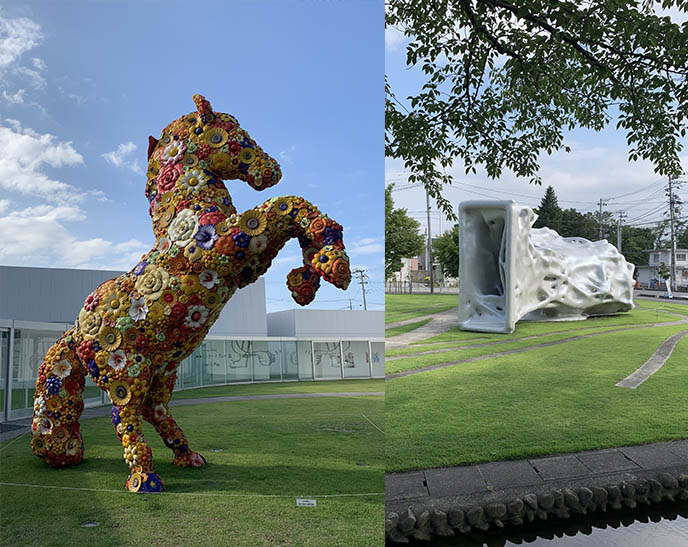
The following day we had the pleasure of meeting a local friend, Yoko, who kindly took time to rent a car and take us to must-see places. We realized how difficult it is to travel around Aomori without a car, so her help really made our trip worth writing about!
Our first stop was the Towada Art Center (十和田現代美術館). Outside, there was free street art for anyone to enjoy.

The infamous Yayoi Kusama (草間彌生) had an art platform opposite the main building, featuring her recognizable dotted sculptures. We also saw firefighters climbing a wall that was surprisingly part of the exhibit, and a friendly ghost manifestation.
PS: see La Carmina’s review of the Stockholm Yayoi Kusama exhibit here, as well as her trip to Naoshima Island (land of the giant pumpkins).
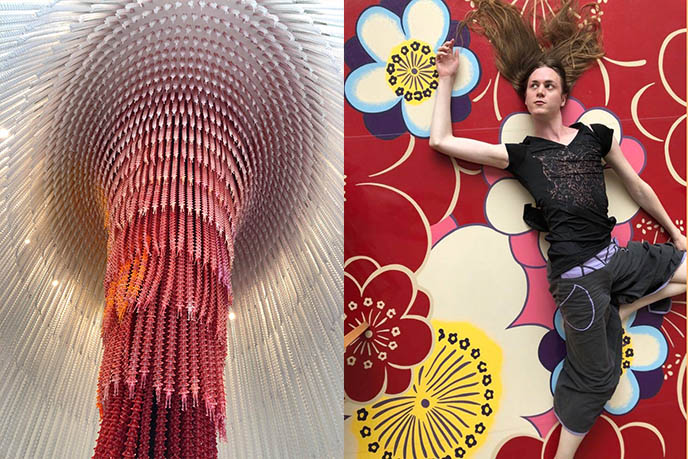
Also exciting was the Wish Tree, planted by Yoko Ono; you wrote your wish on a paper strip and hung it on one of the branches.
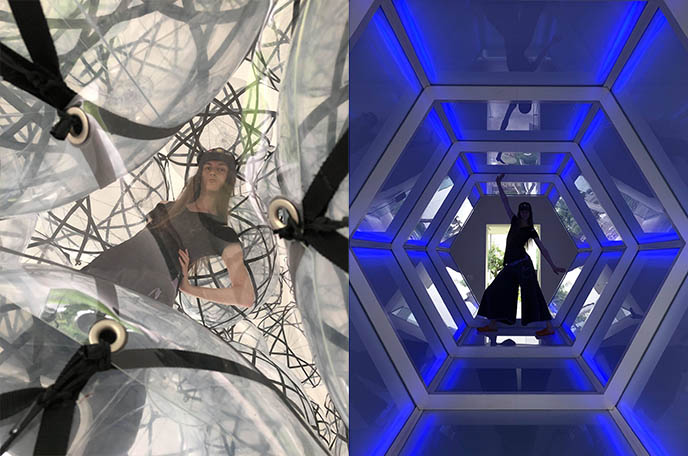
I enjoyed Towada’s many interactive pieces, and slightly hidden art that you had to search for. We took fantastic photos amidst the glass walls, and enjoyed installations from artists around the globe.

Next, Yoko took us to the Oirase Gorge (奥入瀬渓流) – a long path for hikers, through jaw-dropping waterfalls and picturesque trees. The gorge stretches 14 km from Nenokuchi (子ノ口) on Lake Towada (十和田湖) to Yakiyama (焼山). The strong current leads through a ferocious path with many rocks.
When we went, there was mud because of rain, and the thicket of trees made the temperatures quite cool. Even in the peak of the summer, I recommend wearing rubber boots and an extra coat layer.

After a few scenic stops, we made it to the peaceful Lake Towada, the largest caldera lake on Honshu Island. On one of the rocks in the water we could spot a tiny shrine, which belongs to a god who protects the lake. Yoko took us to Towada Shrine (十和田神社), and we admired the mossy stones that are said to have healing powers.

We also saw the “Statue of Virgins” (おとめ像) on the beach side of the lake. It’s the last remaining work of poet and sculptor Takamura Kōtarō (高村光太郎), and in our eyes, looked more like a romance between two women. Thanks to Yoko, we had a lovely day of nature and art.
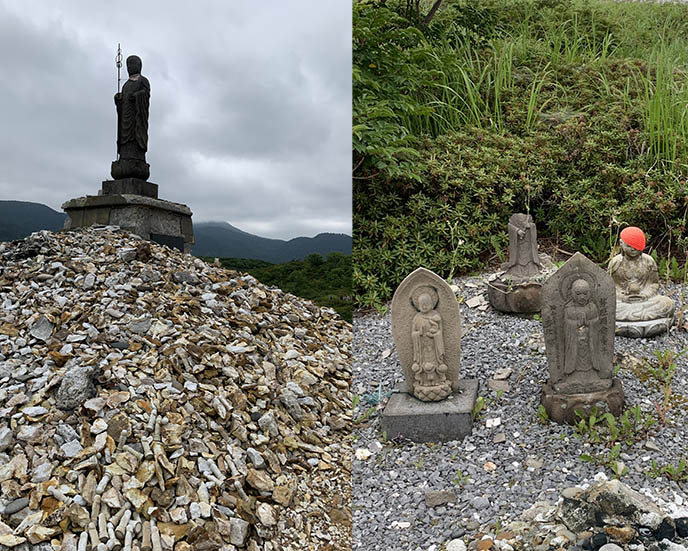
The next day we went to Mt. Osore, the Mountain of Dread: one of the three most sacred places in Japan. It is also a main shooting location for Terayama Shuuji’s movie “Pastoral: to die in the country” (田園に死 す).
Mount Osore is home to psychic mediums called “itako” who are traditionally blind, and undergo rigorous spiritual training. Itakos can summon the soul of a dead person; they become possessed, and speak to the customer in their spirit’s voice!
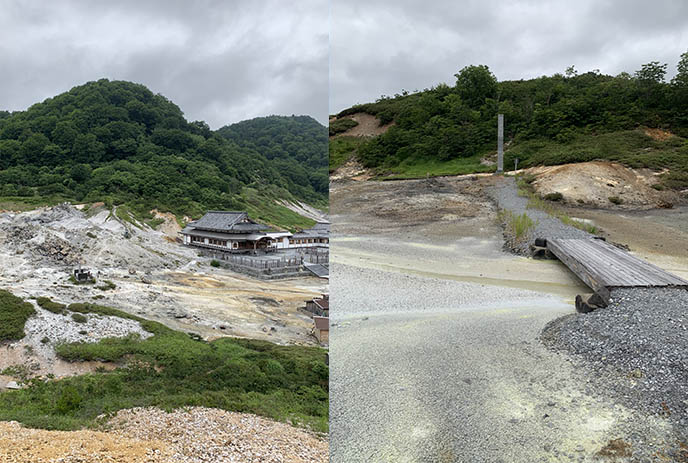
How to get to Mt Osore: From Misawa, take the express train direct to Shimokita Staton (下北), or take the local and transfer at Noheji station. (Not to be confused with Shimokitazawa, the hipster area in Tokyo frequently shortened to Shimokita!) Then, ride one of the three daily 40 minute buses to Osore. The trip took about 2-3 hours and cost 1900 yen for the train and 800 yen for the bus ride, per person each way.

Arriving at Mount Osore was like entering another realm. The holy ground is said to have spirits of the dead roaming about. It is also an active volcano, and is believed in Japanese mythology to be one of the gates to the underworld.

Admission info: The entry fee for adults is 500 yen, and there’s an overnight option with meals included for 12000 yen. The festivals with Itako spirit readings take place between July 20-24, and the area is open 6:00-18:00 each day between 1st of May to 31st of Oct (imagine going there on Halloween.) Osore is too cold in the winter for humans to visit… but not for spirits!
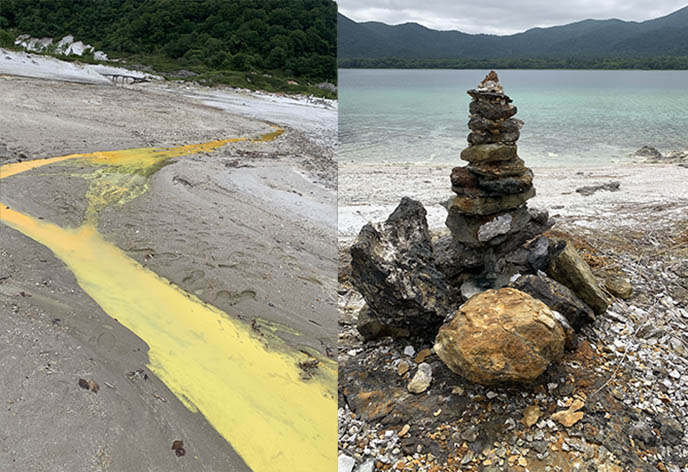
The place is gigantic, so allow several hours to walk around. The main temple, Bodaiji (菩提寺), is said to be founded 1200 years ago by the monk Enʼnin (円仁), and belongs to the Sōtō division of Zen Buddhism. The sanctimonious Mount Osore contains the highly acidic waters of the caldera lake. Lake Usori is in the center, surrounded by 8 mountain peaks representing the lotus flower’s 8 petals.
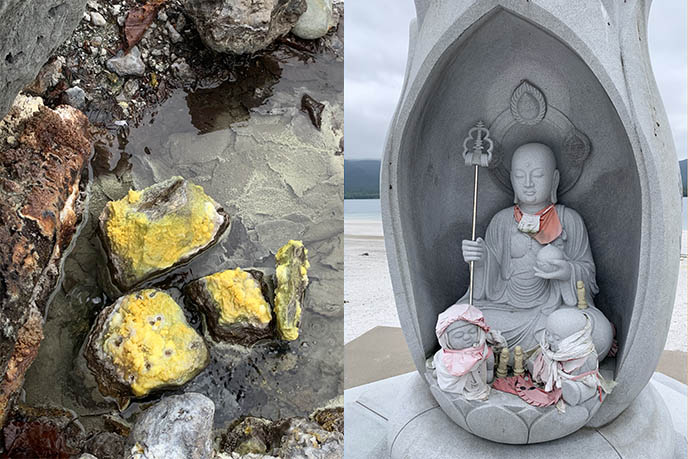
The area has many fumaroles (openings of the planet’s crust) emitting steam and volcanic gases (especially sulfur dioxide… the smell was everywhere). There are exactly 108 fumaroles, representing the 108 worldly desires and the 108 hells bound to them. Some of these hells even had their own signs with dramatic names, such as: The hell of salt, The eternal hell, The hell of severe crimes, and the hell of the blood-pounding pond!
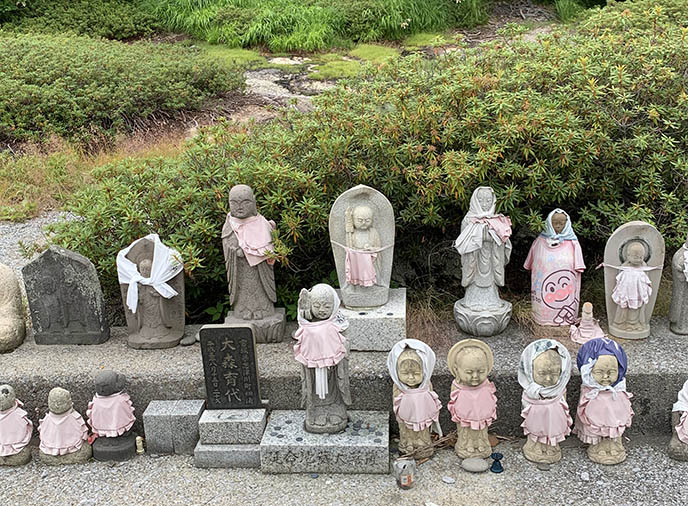
Mount Osore looked like a demon landscape. The paths bubbled with sulphuric yellow, orange or blue, while the white sand and grey stones made the scenery look like an endless graveyard. Adding to the melancholy were hundreds of Jizou bodhisattva (地蔵菩薩), or stone figures that guard over children who have died. Many of these small stone monks were clothed in handmade baby bibs and hats.

We saw pyres and monuments to famous monks, as well as offerings of cute pink windmill toys (風車). This famous Japanese toy represents unborn children, and is said to help them find peace in the afterlife. Seeing so many was heartbreaking and overwhelming.
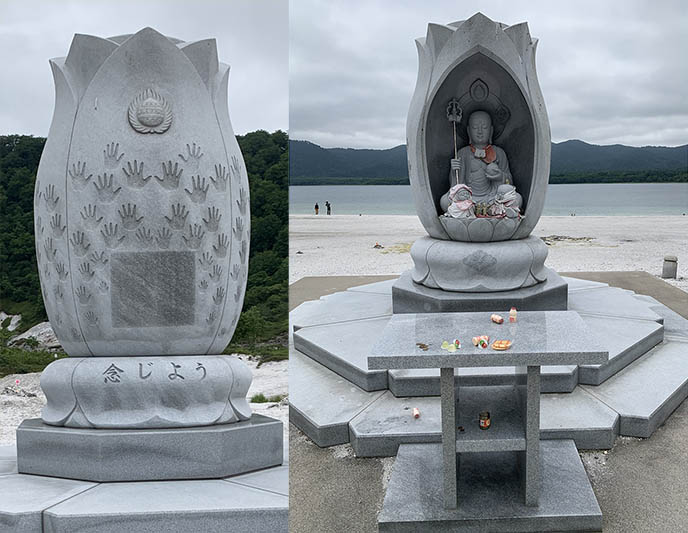
Osore had other meaningful tributes to those who have passed. I saw a large urn, shaped like a giant lotus, with hand-prints (mainly of children) on the back side. This was a monument for the unfortunate souls who died in Japan’s 2011 tsunami and earthquake.
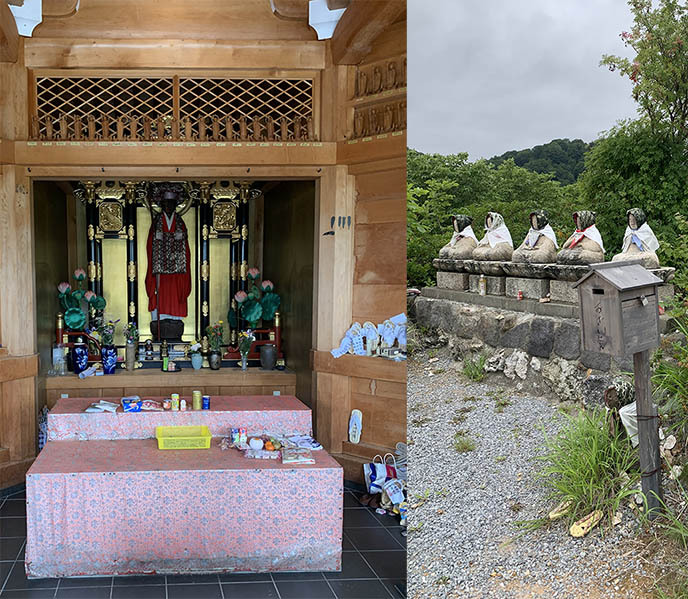
In one hut, I found heirlooms and old clothes belonging to the dead, with names of the unborn written on wood stripes all over the ceiling.
In Japanese media, the Mountain of Dread tends to be portrayed as a haunted place. It is said that you are cursed if you take any stones from the holy ground. In fact, this is a site of meaningful stillness and remembrance, which really spoke to me. While I loved the otherworldly Gothic atmosphere, I also felt this was one of the most serene places I’ve ever visited. There was no malice in the air – just a solemn peacefulness.

On the last day of our journey, we took a local train from Hachinohe to Shark Town station (伸), where there were an obnoxiously high number of seagulls by a shrine. These were actually “Black-tailed gulls” (Umineko 海猫). Fun fact: the word in Japanese Umi-neko is a compound of Umi – ocean and Neko – cat, so basically they are called “sea cats” or “cats of the ocean.”

We walked 10 minutes from Shark Station to Kabushima Shrine (蕪島神社) and as we got closer, we started hearing cat-like cries. It turned into a screeching as we approached the small harbour. Unlike regular seagulls, these beasts had black tails, a red ring around their eyes, a black mark on the beaks, and a sharp red tip: as if they’d just dug into raw flesh and still had blood dripping from their Gothic faces.
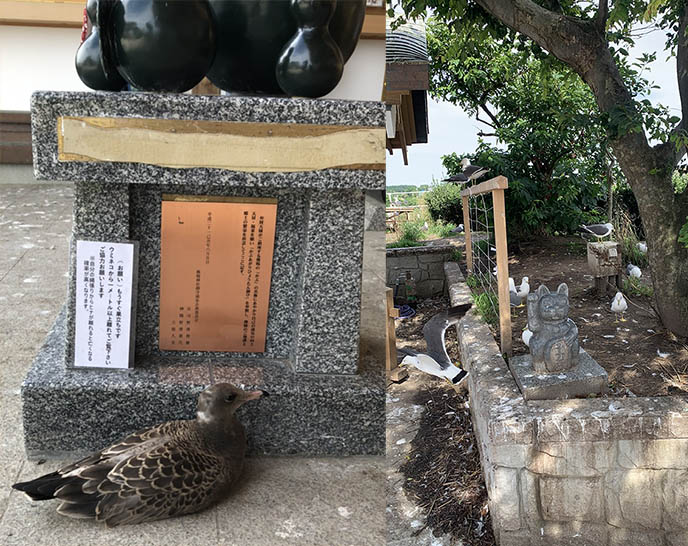
The little shrine on the hill burnt down in 2015 but was rebuilt as of last year. The workers stopped construction while the gulls were hatching their babies, so they could raise them in peace. In mid July, the hatchlings still wore a brown coat of feathers but were as large as adults. I was stunned by how they were unafraid of humans; you basically had to be careful not to step on them.

As you can imagine there was bird poop absolutely everywhere and we were afraid of being targeted from above! I would recommend this shrine if you are a fan of animals and birds in particular, but only if you have some extra time in Aomori. On the contrary, if you have a phobia or were freaked out by Alfred Hitchcockʼs “The Birds” I would suggest never to step your foot at Kabushima shrine!

Thanks to Yukiro for the eye-opening guide to Aomori! I didn’t realize there was so much avantgarde art and spiritual / Gothic scenery in this region of Japan. (Here are a few final pics from Towada Art Center.) Hopefully I can visit soon.

For more from Yukiro, watch his latest (freak)show drag performance here. The entire Haus of Schwarz (Stefani ST Sl;t , Le Horla, and Angel Heart) performed, with mommy dearest Die Schwarze Frau near the end! Le Horla’s spooky makeup was put on by Haus’ Drag Dad, Weryk.
If want something unproductive to do during quarantine, watch Yukiro’s YouTube series, Witch Review. Die Schwarze Frau dishes on her favorite old school horror cult B movies, sharing her darkest thoughts with you! There are no spoilers, so you can watch these reviews in (ill)-faith.
And if you’re inspired to dress in Gothic or Punk clothing, check out Punk Rave Store — they have many dark styles for men and women.

And we order you to tune in to Yukiro’s Halloween livestream extravaganza, called Casket of Horrors! All members of Haus der Schwärze will perform live, and then there will be 10 spooky videos submitted from around the globe. The winner will be crowned “The Queen (or Queer) of Halloween 2020!” Watch the live-stream online (here’s the info) on 2020/10/10 at 20:00 Japan time, if you dare.
Love it to death? Then support Yukiro by buying him a glass of red wine here!

SHARE & COMMENT
Travel guide to Japan’s Cat Island & Fox Village! Japanese cats at Tashirojima, Tokyo drag queens & Goth club Witch Garden.
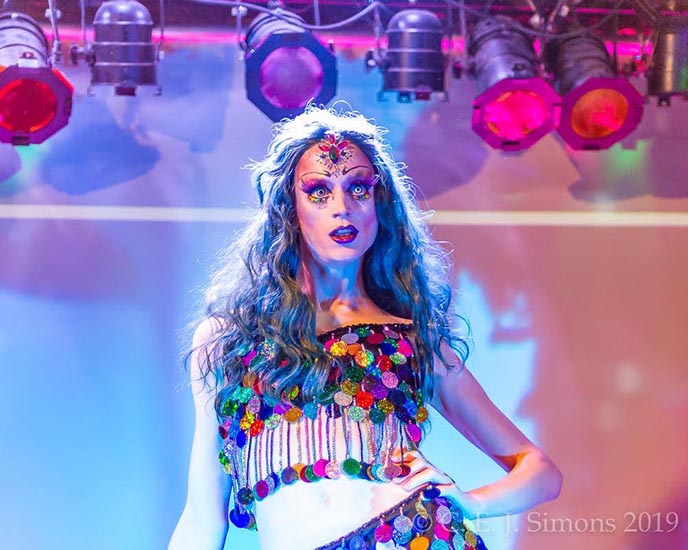
She’s back… I’m delighted to present a travel story by Yukiro Dravarious, aka Tokyo drag superstar Die Schwarze Frau!
Did you know Japan has a fox village, and an island of cats? In this special post, Yukiro takes you inside these bizarre Japanese attractions that are sure to enthrall any animal-lover.
PS, Goth alert: Yukiro and DJ Sisen are having an old-school Gothic party in Tokyo, on Saturday, September 15! See the end of this post for details, and I hope you can make it to their spooktacular club night Witch Garden – details here.

In the words of Yukiro:
What a dream come true! For a birthday gift this year, I got to travel to a Japanese Cat Island and Fox Village. Just as the names suggest, these places feel like entering an old school children’s picture book. Being surrounded by human-friendly fuzzy felines and foxes was tremendously fantastic.

Even after living in Tokyo for 12 years, there are always new things to explore in and outside of the capital. I heard of the notorious Cat Island, aka Tashiro-Jima (田代島) last year. Ever since, I’ve been looking for a good opportunity to visit this isle inhabited by hundreds of cats.

(Quick fashion break before we continue to his foxy and catty travel adventures!)
Yukiro is a huge part of this blog for 10+ years, and I wanted to give you an update on his many creative pursuits in Tokyo. He performs regularly as Die Schwarze Frau, a frighteningly fierce Gothic drag queen, with regular shows in Tokyo.
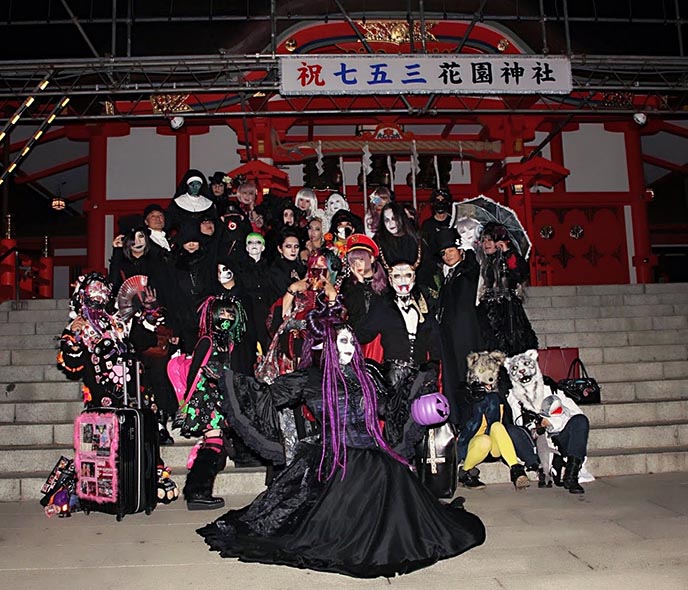
Above, how fierce is the Tokyo Goth and drag fashion scene?
Yukiro and his friend Julia are currently filming a video series, which dissects each episode of the Boulet Brothers’ Dragula (Goth drag queen competition show). Want to know who’s their pick for the top super-monster? You can cackle over their catty remarks every week, on Yukiro Dravarious Youtube.
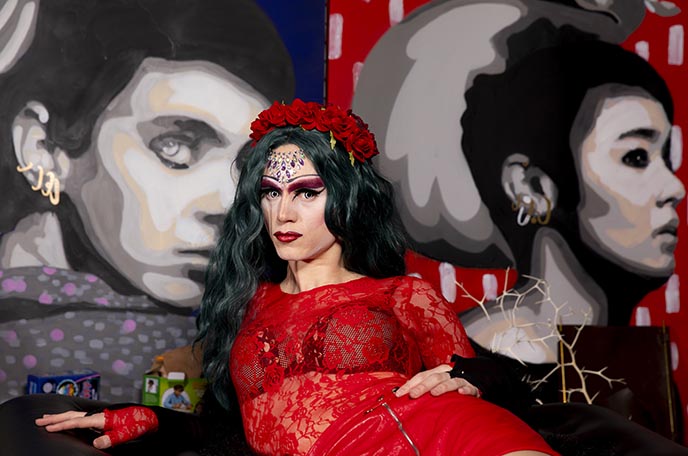
Yukiro never fails to astonish the universe with his out-of-this-world “lewks.” These promo photos for Tokyo Pride Week are by Aleksandar Dragičević (Alexlens.com and @genkiserb Instagram).
I’m always amazed at how he can put together outfits from unexpected materials — living for this Red Queen transformation. And how fab is the makeup?
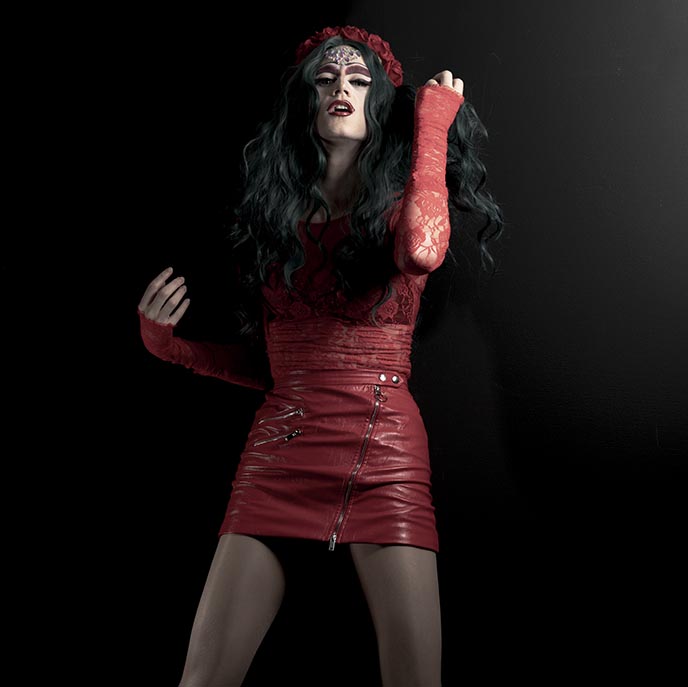
Take a dash of Halloween horror, and add glam rocker confidence… The spooky queen reighneth!
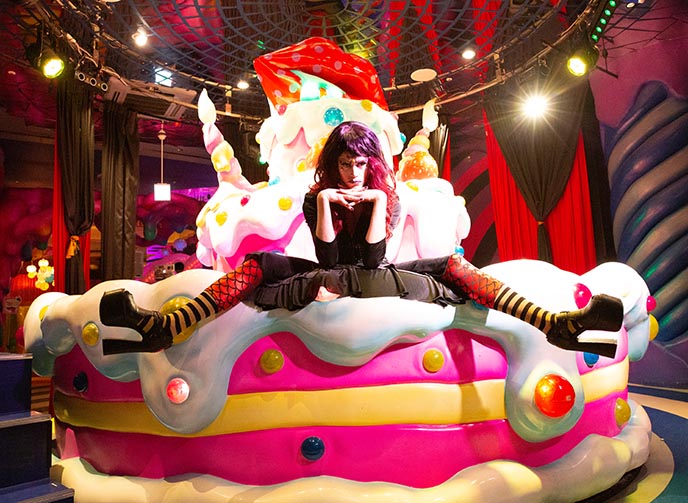
Yukiro’s also busy filming a new B-movie, and does drag shows regularly at Harajuku’s Kawaii Monster Cafe. (The next dates are 9/12 & 9/26).
If you’d like a piece of this dark cake, scroll to the end of the post to see Die Schwarze Frau’s upcoming performance dates (including the Witch Garden Gothic party on September 15 in Tokyo).
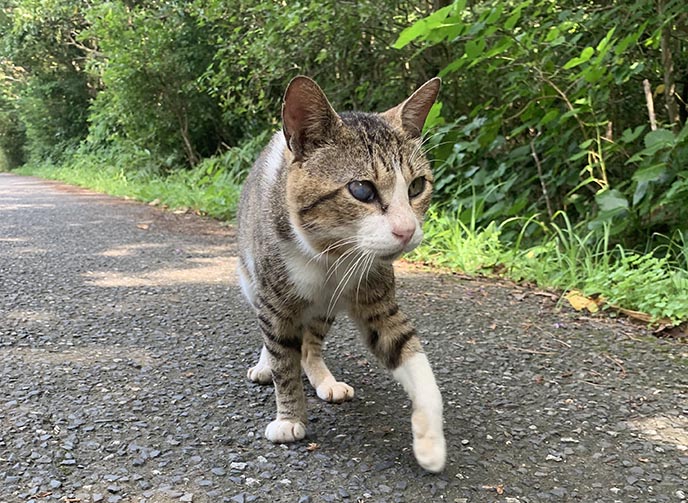
Now, let’s step back into Yukiro’s Japan travel story. Take it away, queen…
Going to the Cat Island in Japan is more or less of a fuss, which makes it so much more rewarding when you finally arrive. First, you must travel to Sendai (仙台). The fastest way is from Tokyo Station by shinkansen (bullet train). If you’re on a budget, you can take local trains or buses, but that takes a good half day of transit…
From Sendai, you must then travel to Ishinomaki (石巻) by train, or by the cheaper bus. Ishinomaki was hit hard by the tsunami from the earthquake disaster on 2011-3-11, and had to be rebuild. The nearby cat island, Tashirojima, was also badly damaged... and that of course had it’s turn on the poor cats.
We often forget about animals when a disaster like this happens, and how badly it effect every living being. Nowadays, the island’s cat population is a mere fragment of what it used to be. Nonetheless there are still many cats around.
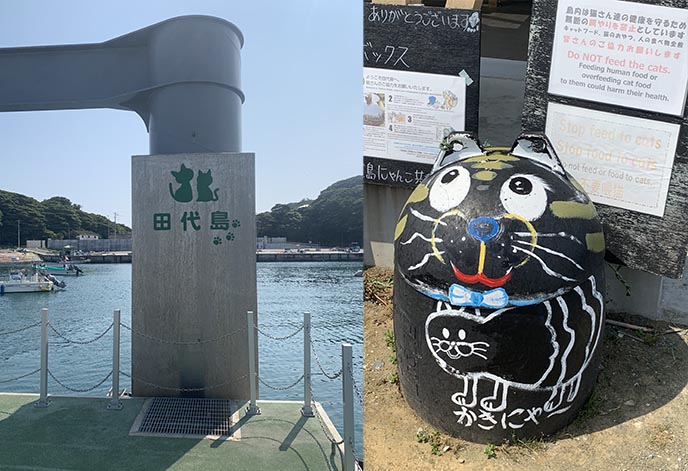
How to take the ferry to Cat Island: We woke up early the following day to catch the morning ferry from Ishinomaki port to Tashirojima. There is a bus from the train station you can take to the port, or you can walk for 10-15 min. You have to buy the tickets to the ferry in a separate building from the port, but it wasn’t too hard to find. The ferry takes approximately 40-50 min.
There are usually only 3 ferries going a day, so make sure to check up the times before going. Once on the island there are lots of signs and time tables showing what time the next boat will come.
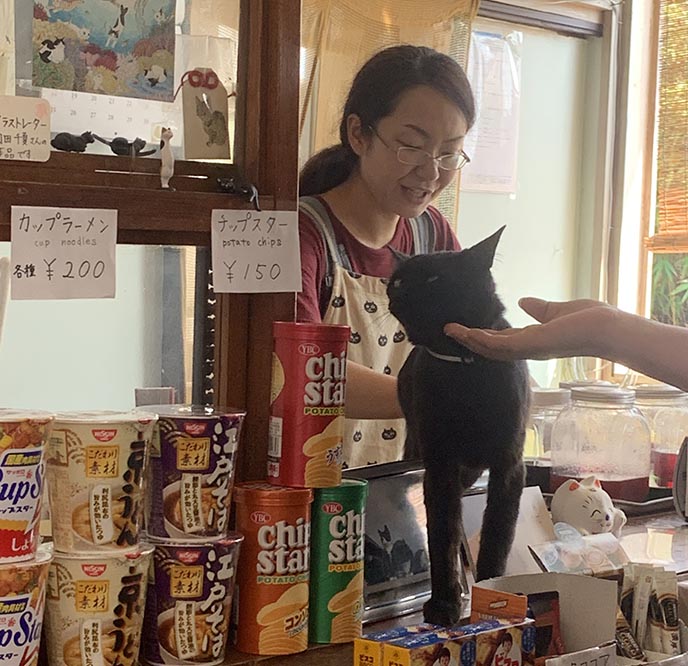
There were clear instructions and signs on how it was prohibited to bring dogs to the island, and to not feed the cats. I was very happy to see these responsible restrictions.
It was as big contrast from my trip last year to the Rabbit Island, which is also highly recommended. (It’s called Ōkunoshima, 大久野島, and located outside of Hiroshima). Over there, a lot of tourists were feeding the wild rabbits and it was even encouraged by the islanders.

Tashiro-Jima’s cats were used to tourists and sometimes let you pet them! They all seemed to be from the same cat species, a tinier sort that is super adorable.
When there are many cats around you, you can clearly see how different each cat’s personality and expressions are. “Meow” — or as in they cry in Japanese — “Nya, Nya!”

There was not much to do on the island itself, other than see the feral cats. One of the highlights was to visit the Cat Manga Museum. We found various cat drawings by very famous Japanese manga artists, such as one of my heroes Nagai Go (above left – the artist who draws Devilman, Cutie Honey etc). A fun fact; it is said that before Tashiro-jima was known as the Cat Island it was known as the Manga Island!
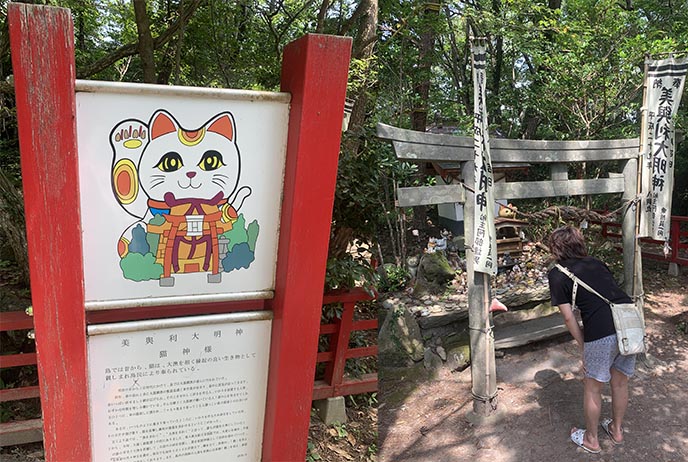
The second and final sightseeing spot was Neko-jinja, the cat shrine (猫神社). Besides that, you can walk around the small island in less than 1 hour.
The entrance featured a maneki neko with a raised lucky paw.
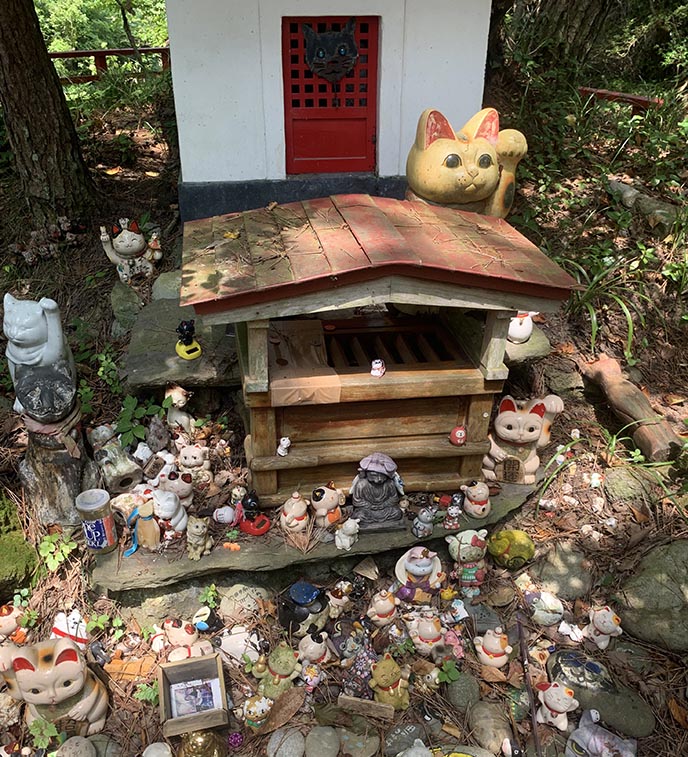
Many visitors left little kitty statues and offerings at the Japanese neko shrine.
(La Carmina’s note: There are actually about 12 cat islands in Japan, aka islands inhabited mainly by kitties. Another popular “Cat Island” is Aoshima, which is located in Ehime Prefecture.)

We enjoyed taking shelter from the sun inside one of the many hidden cafes. This one is called Black Cat Cafe, or (黒猫堂) Kuro-neko-dou. Despite the name there were several cats inside with collars, in many different sizes, colors and shapes.
We indulged in black coffee and their speciality, Cat Curry. The only thing kitty about it was the shape of the rice. Still, it was rather fun to eat it on the cat island.
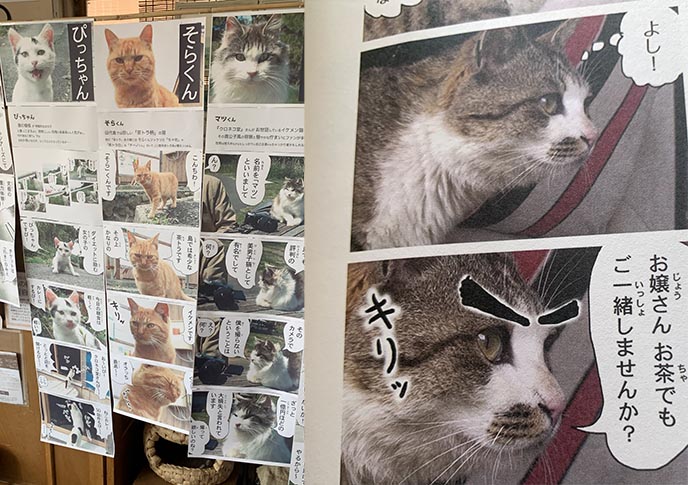
At this cafe there was also a comic exhibition of famous cats from the island in manga style. They had drawn-on evil eyebrows and spirally cheeks. Naturally I liked the malicious looking cats the most!

I wouldn’t set my foot in most cat cafes, as the ones in Tokyo tend to treat them badly. Super small cages and constant abuse from tourists, with a few exceptions of course.
But on this island the cats were not an object for customers. They are the primary residents could come and go as they wanted. Sometimes the cafe cats even helped by jumping up on the cashier and tumbling around in the goods.

One of my best memories was how in the middle of the road, a snake and a cat were communicating and somewhat starting a fight. Both of them were very stubborn and refused to budge. I think the cat got bored after a while or the snake won the staring competition… since the cat walked away after a few futile attempts to paw its tail.

What to pack for a trip to Cat Island: I recommend bringing the following necessary items: 1. Sun lotion, as it gets very hot and there is little shade outside. (La Carmina note – one should wear sunscreen year round!) 2. Mosquito repellent. 3. Sunglasses and sunhat. 4. A book or phone game while chilling in the shadows. 5. A good camera 6. Hand sanitizer to put on after cuddling with the nekos.

There were a lot of cat souvenirs everywhere as one could figure. We were in awe after seeing DVDs of cats who had become celebrities on the island.
I would totally like to go back again to Tashirojima, the island of cats. I assure you it will be a dear memory to cherish especially if you are a cat person like me!

This summer, I also travelled to Japan’s Fox Village. Cat Islands – sure that is a thing, but a village of foxes is completely out of this world!
Foxes are a strange fascination, as they are undeniably cute but also predatory. I grew up in the countryside, where you always hear stories about how a sneaky fox went through the fence and got some chickens or rabbits. They are very smart animals and should be handled with caution.
That being said, the Fox Village is a breeding center so these animals are accustomed to humans. Still, as the sign says before you enter, they don’t take any responsibility for injuries… so enter at your own risk, mohahahaa!
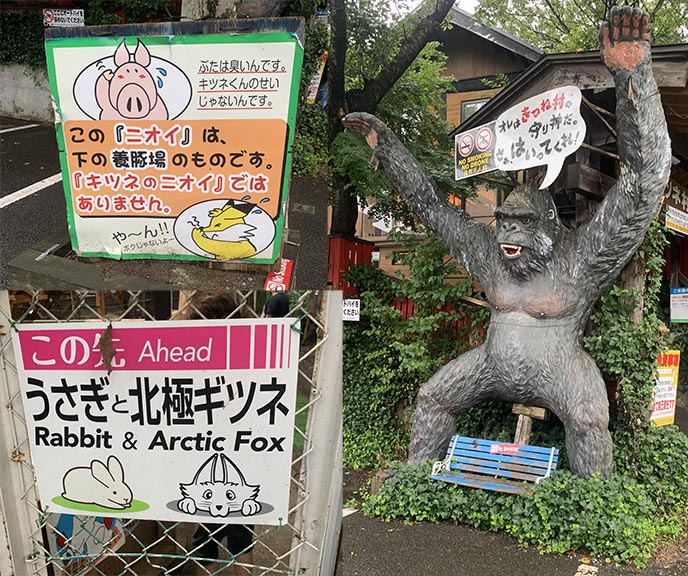
How to get to the Fox Village:
Zao Fox Village, or Zaoo Kitsune Mura (蔵王狐村) is located in Miyagi prefecture — also a remote and tricky place to get to. We first went to Shiroishi (白石駅) by train from Sendai. I believe most people travel to the village by car (from Sendai it would be a 1 hour car trip, and from Tokyo it would take 5 hours).
We took the bus from Shiroishi station to Zao Fox Village. There seems to only be one local bus going there in the morning around 7:30 am and one back at 2pm… on Tuesdays and Fridays only.
If you go there on a budget, the 1 hr bus ride is recommended. However getting a taxi is also a valid option if you have 3-4 people sharing. We actually did that on the way back and it was only 4000 yen, or 1000 yen each – not bad at all, and way faster than the bumpy bus ride.
Once at the Fox Village you’ll get greeted by… a gorilla!?

There are a lot of “do not” signs everywhere, but don’t worry. Before you enter the area, the staff will show you very clear instructional pictures about what is allowed and what is not.
Most of the staff could make themselves somewhat understood in English, since they now have many tourists from outside Japan. Just be rational and treat the animals with respect, and they will do the same to you.

You are not allowed to touch any foxes, and the youngsters / rarer species are locked in cages. They have over 100 foxes and a total of 6 different types. Some are in different colors like the marvelous white and black foxes. They all were utterly cute!
I especially was struck by how they curl up in a ball and use their tails as pillows to snooze on. Their tails are truly magnificent; as long as their bodies if not even longer, with an oval shape and super fuzzy. No wonder fox fur and tails are luxurious products… (I’d never purchase or support the fur market though!)

There was some rabbits and goat kids around too. One of the horned goat kids managed to escape several times and made quite a scene, to our delight. But he got swiftly carried back again by the care-takers.
Some of the cages were, by my standards, way too small for the poor animals. That being said, the biggest cage had 50-80 foxes sleeping and hanging around – a broad and spacious playground where they run freely!

It was a fabulous and unreal sensation to be surrounded by so many foxes. If you reached out your hand you could easily touch them – but you are not allowed to!
You should never show them fear because they will take that into their advantage. No plastic bags or hanging objects are to be carried with you, not even your wallet. They might take a bite at it if its sticking out of your pocket.

Be prepared for quite an intense musky smell around the foxes. Also, in the summer, most of them are in the midst of shedding their furs. There were even signs that said “I’m sorry for being ugly, we are just changing our summer furs.”

The most amusing episode was when my travel partner Kenichi was scent-marked by one of the foxy creatures, in the middle of the sidewalk. So he is now in their possession… it was nice knowing you (666)!

The staff checks the foxes for pests or sickness each year, and take cares of them with vaccinations and care. Therefore, the facility is supposedly completely safe from diseases.

They provided hand sanitizers and hand washes for visitors, before you go into the bigger cages. Grandma’s tip: always wash your hands thoroughly after touching wild animals!
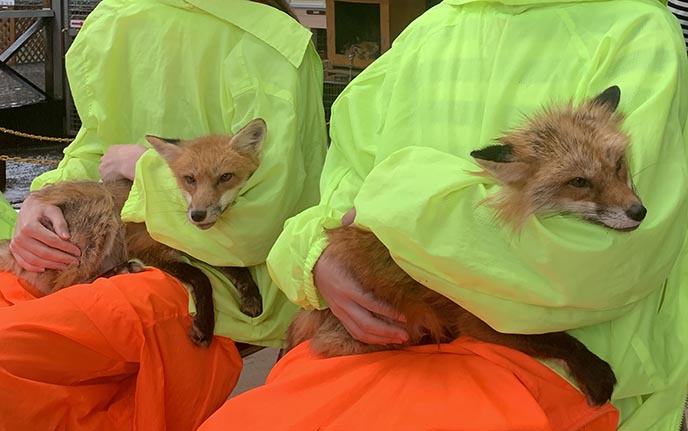
Another highlight was the “photo and holding a fox session,” which they do once or twice a day at certain hours. We waited for our turn, and got to wear raincoats and trousers over our clothes (to avoid getting them dirty or smelly) while holding a fox.
It was very safe with plenty of staff making sure nothing went out of hand – literally! The foxes we got to hug were probably trained for this and accustomed to humans. However they are predators and unpredictable tricksters, so you better listen and follow the instructions being given.
You got to take a photo while holding the fox for 1500 yen extra – but it was so worth it. Feeling their heartbeat and having one on your lap is such a trip, and cuteness overload.

Here too there was a lot of overpriced merchandise in the souvenir shop, all with fox motifs. There was no food court or food stand when we were there so I highly recommend bringing rice-balls, food and drinks to the rest area.
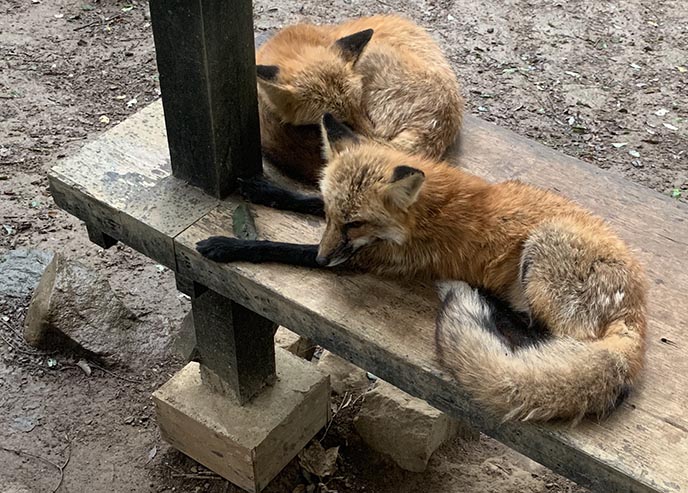
What does the fox say? “Kyuun Kyuun! Kon Kon!” Foxes are a sacred auspicious animal in Japanese spirituality, and you can see temples (Inari-san) with fox motifs and masks worn at certain festivities.
It became very clear to me after being to the world’s only Fox Village why Japanese people love foxes so much! For all of you foxy ladies and furry lovers you simply must go visit when the opportunity comes.
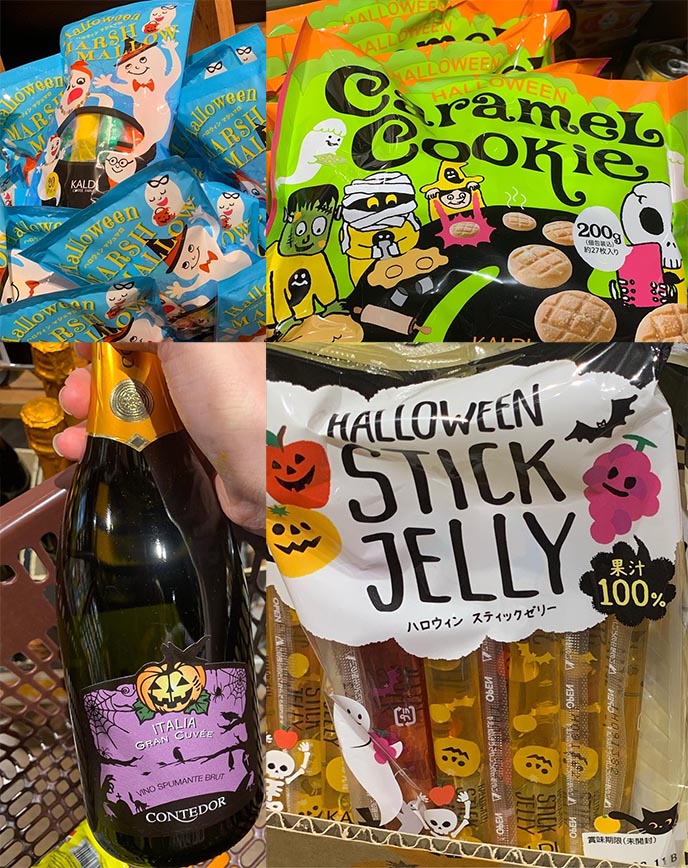
I leave you with some of Yukiro’s Halloween snaps from Tokyo. Already, there’s a ton of spooky snacks, candy, and even wine in stores… (You can shop for Halloween design goods here.)

Trick or treat? In Japan, everything is packaged with distinctively kawaii-cute designs. You won’t see smiling pumpkins and happy ghosts like these in North America. My favorite is the nori (black seaweed) bat on the right!

At 100-yen stores like Daiso, you can shop til you drop dead for Halloween goods. There are racks of ghostly merchandise at Tokyo “dollar stores” right now… perfect for a Day of the Dead party.
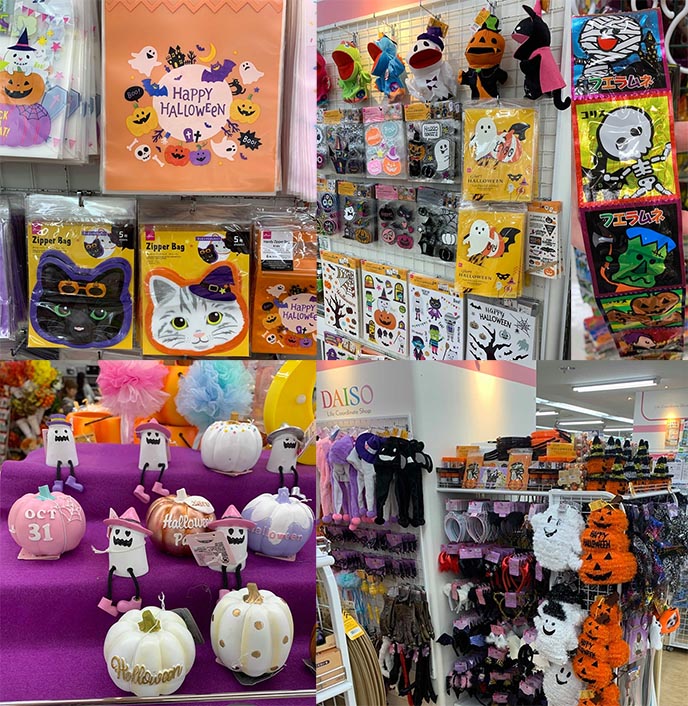
Stickers, costumes, party decor, makeup… Halloween is here, my friends, and I couldn’t be happier.
If you aren’t in Japan, don’t worry — you can find spook-tastic decorations and home goods online here.

Now, the most important announcement! Did you know Yukiro and DJ Sisen launched a Goth party in Tokyo, called Witch Garden?
The next one is coming up on September 15th, at Shinjuku Club Science. It starts midnight, and is 3500 yen at the door or 3000 yen in advance. Please press “going” on the Facebook page for an advance discount, and to see all the details of the performers.
The witchy event has a theme each time, and guests love to dress up to the nines (it’s encouraged, but not mandatory). This time, the theme will be Medieval Witches. Above, you can see a video of the past party (Witches from Space) to get a sense of the atmosphere.
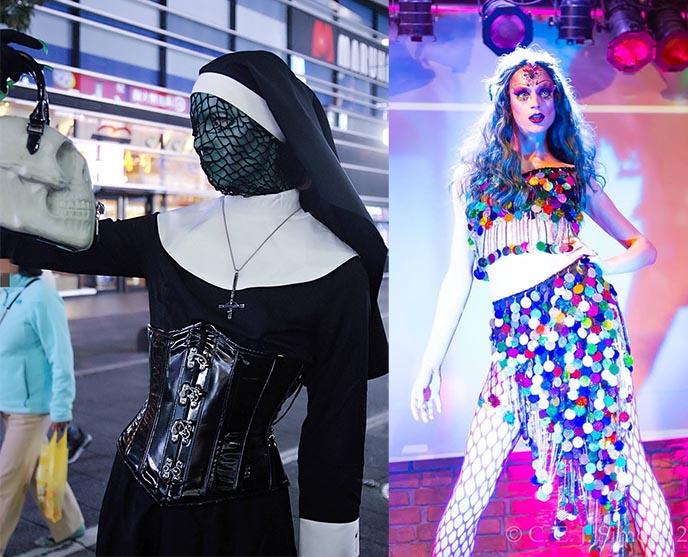
Yukiro writes: “The Goth and alternative scene in Tokyo has been slowly but steadily dying and we’d love to get your help in raising it from the dead. Even if you can’t come, we’re grateful if you can post about it on social media, to make people aware that this amazing party is happening!” See all the info about Witch Garden here.

You can also catch Die Schwarze Frau’s Gothic extravaganza drag show at Kawaii Monster Cafe in Harajuku (9/12 & 9/26, and ongoing).
Did you know about Japan’s Cat Island and Fox Village before this story? Would you like to see more guest posts on this blog by Yukiro?
I hope you’ll get a chance to party with him and DJ Sisen at Witch Garden, the next time you’re in Tokyo!
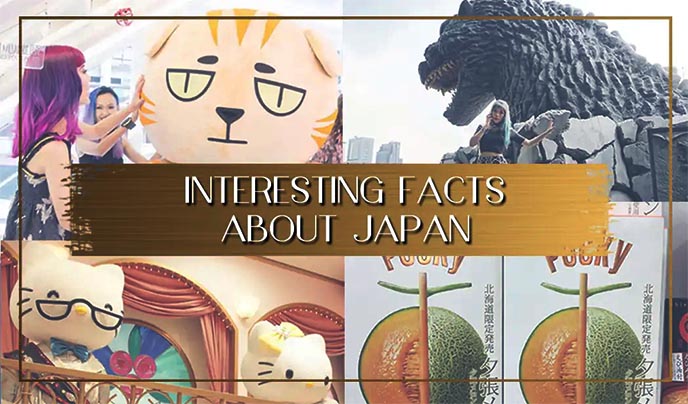
PS: A quick update from La Carmina – I’ve been busy guest-writing Japan articles for Once In A Lifetime Journey, the luxury travel site run by my friend Mar Pages! So far, I’ve written a bunch of Japanese travel guides — including fun and interesting facts, where to shop, what to eat, and things to do all over the country. You can read all my Japan guest posts here.
 LA CARMINA
LA CARMINA






